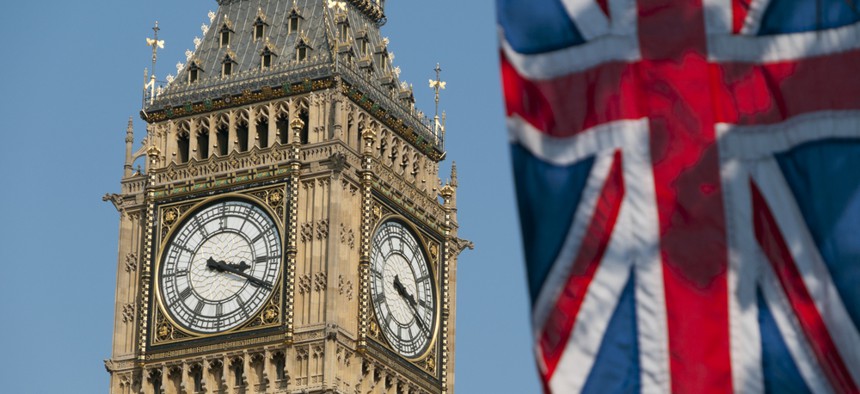
Gary Blakeley/Shutterstock.com
British Spies Allowed to Access U.S. Data Without a Warrant
Newly released documents from the British government reveal a lack of judicial oversight for how it sifts through communications data collected by the NSA and other foreign governments.
British authorities are capable of tapping into bulk communications data collected by other countries' intelligence services—including the National Security Agency—without a warrant, according to secret government documents released Tuesday.
The agreement between the NSA and Britain's spy agency, known as Government Communications Headquarters or GCHQ, potentially puts the Internet and phone data of Americans in the hands of another country without legal oversight when obtaining a warrant is "not technically feasible."
The data, once obtained, can be kept for up to two years, according to internal policies disclosed by the British government. GCHQ was forced to reveal that it can request and receive vast quantities of raw, unanalyzed data collected from foreign governments it partners with during legal proceedings in a closed court hearing in a case brought by various international human-rights organizations, including Privacy International, Liberty U.K., and Amnesty International. The suit challenges certain aspects of GCHQ's surveillance practices.
It is well known that the NSA and GCHQ closely share intelligence data with one another, as part of a long-standing surveillance partnership. Some details of the agencies' spy pact were exposed by former NSA contractor Edward Snowden last year, including the existence of GCHQ's Tempora program, which taps into fiber-optic cables to scoop up online and telephone traffic across the Web for up to 30 days.
But this is the first time the British government has disclosed that it does not require a warrant to access data collected and maintained by its American counterparts. The revelation appears to counter statements made by an oversight committee of the British Parliament in July of last year that "in each case where GCHQ sought information from the U.S., a warrant for interception, signed by a minister, was already in place."
It is unclear whether any restrictions on Britain's access to NSA surveillance data is imposed by the U.S., and the NSA did not respond to a request for comment. However, documents provided by Snowden to The Guardian last year reveal that the NSA shares raw intelligence data with Israel without removing information about U.S. citizens.
American privacy advocates quickly condemned any warrantless access of U.S. communications data by British authorities.
"The 'arrangement' disclosed today suggests that the two countries are circumventing even the very weak safeguards that have been put in place," Jameel Jaffer, deputy legal director of the American Civil Liberties Union, said in a statement to National Journal. "It underscores both the inadequacy of existing oversight structures and the pressing need for [surveillance] reform."
(Image via Gary Blakeley/Shutterstock.com)







